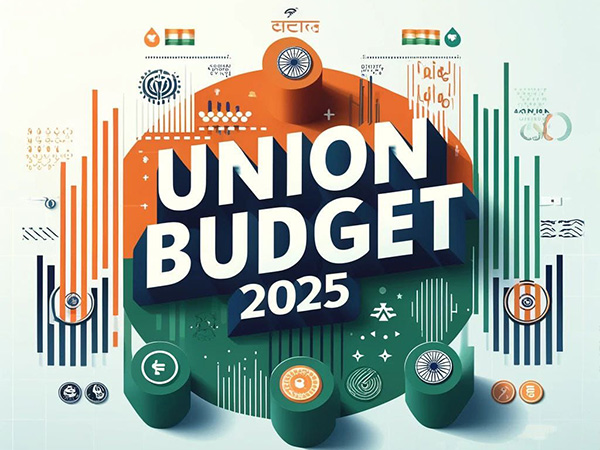New Delhi [India], February 1 (ANI): The Union Budget 2025-26 is set to be presented on Saturday, anticipating to strike a balance between economic growth and fiscal prudence while addressing the expectations of taxpayers, businesses, and key industries.
Industry leaders and experts are hoping for measures that drive consumption, incentivize capital expenditure, and support critical sectors such as real estate, MSMEs, healthcare, artificial intelligence (AI), electric vehicles (EVs), and renewable energy. Furthermore, continued fiscal consolidation remains a key expectation.
One of the most awaited aspects of the budget is tax relief for individuals and businesses. Taxpayers are expecting changes in tax slabs under the new tax regime, with hopes of an increase in exemption limits and standard deductions. There is a demand for making annual income up to Rs10 lakh tax-free.
Taxpayers are also expecting an increase in the standard deduction limit, currently set at Rs50,000 under the old tax regime and Rs75,000 under the new tax regime.
Businesses expect a growth-oriented budget while maintaining fiscal discipline. A survey by FICCI found that 68 per cent of businesses favor at least a 15 per cent increase in capital expenditure allocation to fuel economic growth.
The government is expected to continue its fiscal consolidation roadmap, bringing down the fiscal deficit from 4.9 per cent in FY25 to 4.8 per cent, with a target of 4.5 per cent in FY26.
Industry stakeholders from key sectors have also outlined their expectations. The real estate sector is advocating for tax rationalization, an increase in the home loan interest deduction limit under Section 24(b) from Rs2 lakh to Rs5 lakh, and relief in long-term capital gains (LTCG) tax.
The healthcare sector is seeking increased spending to 2.5 per cent of GDP, lower GST on health insurance premiums, incentives for digital health solutions like telesurgery and electronic health records, and reduced import duties on medical equipment.
MSMEs demand better credit access and technology adoption incentives to drive sectoral growth, while new-age sectors like AI, EVs, and renewable energy expect policy incentives and financial support to enhance innovation and industry adoption.
Tax reforms and simplification measures are another key area of focus. The government is expected to introduce a modernized Direct Tax Code (DTC) to simplify the 63-year-old Income Tax Act, similar to how GST transformed indirect taxation. Industry stakeholders seek simplification of complex TDS/TCS provisions to reduce litigation and compliance burdens.
With India’s economic momentum strong, 60 per cent of businesses expect GDP growth between 6.5 per cent and 7 per cent in FY25. There is a growing focus on strengthening collaboration between educational institutions and industries to ensure a job-ready workforce, particularly in IT, healthcare, and manufacturing.
Infrastructure development and export competitiveness are also key expectations. Continued investments in roads, railways, and other critical infrastructure are expected to be a major budgetary focus.
Businesses are pushing for logistics efficiency improvements and an extension of interest equalisation schemes to strengthen India’s global trade standing. (ANI)
Disclaimer: This story is auto-generated from a syndicated feed of ANI; only the image & headline may have been reworked by News Services Division of World News Network Inc Ltd and Palghar News and Pune News and World News
HINDI, MARATHI, GUJARATI, TAMIL, TELUGU, BENGALI, KANNADA, ORIYA, PUNJABI, URDU, MALAYALAM
For more details and packages













